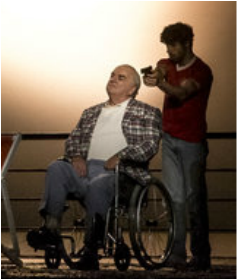 Alan Opie portrays Leon Klinghoffer in “The Death of Klinghoffer” (The New York Times)
Alan Opie portrays Leon Klinghoffer in “The Death of Klinghoffer” (The New York Times) Something must have happened, though, during the Flood. God must have had a change of heart.
Before the end of the Torah portion (Noach), God says, "Never again will I doom the earth because of human beings, since the devisings of the human heart are evil from youth" (Genesis 8:21). Quite a turnaround. First God says that human beings must be killed because they are wicked, then God says that they must not be killed because they are wicked. How do we explain that?
We can say that God experienced a moment of insight about human beings. (You can hardly blame God for needing some time to figure us out. We are a difficult brood.) God realized that, as imperfect beings with limited knowledge of the universe and the result of our actions, there is a need to deal with us compassionately. God realized that death and killing does not work as a response to every ill and every fault. God might also have realized that drowning us all would be unjust. Why should the innocent die for the sins of the wicked?
I suppose that, from God's perspective, none of us is entirely innocent. We all have faults. We all have made mistakes. We are all complicit, in one way or another, with the injustice of the human condition. God realized, though, and God now teaches us, that it is wrong to inflict death upon people who try to live good lives and do their best to live with respect for those around them, even if we sometimes fall short of our highest aspirations.
At the end of the Flood story, God gives some new instructions to all of humanity about how to treat each other. God says, from now on, "There shall be a reckoning for human life of each person for his or her fellow human being." Enough with the killing. No more needless death. (Genesis 9:5).
I've been thinking about that lesson this week. It applies, I believe, to any discussion about the controversy over the opera, The Death of Klinghoffer, by John Adams, and the current production at the Metropolitan Opera in New York City.
Since the day my grandfather took me to see a production of Carmen at the Met when I was nine years old, I have been a fan of grand opera. I also love and appreciate contemporary art music, especially the work of minimalist composers like Steve Reich, Philip Glass and John Adams. I keep a recording of Adams' Nixon in China, which I love to listen to on long trips, on my iPhone.
But I cannot listen to his Klinghoffer.
There is a reason that people are standing in protest outside of the Met every night that Klinghoffer is performed, and I think it should have something to do with this week's Torah portion. The opera tells the story of the Achille Lauro, the ill-fated cruise ship that was hijacked by four men representing the Palestinian Liberation Front in 1985. On the second day of the hijacking, the men shot an American Jew, Leon Klinghoffer, in the head and dumped his body overboard.
Klinghoffer was a 69-year-old man bound to a wheelchair. He was murdered for no reason other than that he was a Jew. Adams' opera attempts to tell the story of the Achille Lauro in a way that gives even and equal treatment to the plight of the Palestinian people and to the Jewish people by allowing both Palestinian and Jewish characters to express their perspectives.
That seems laudable. I think, though, that it entirely misses the point. That is the reason why this opera should be protested wherever it is performed.
The story of the Achille Lauro is not the story of the Palestinian-Israeli conflict. Adams and his librettist Alice Goodman (a woman who converted from Judaism and is now an Anglican priest) got it completely wrong.
The story of the Achille Lauro is the story of the murder of an innocent man – who had nothing to do with the relationship between Israel and the Palestinians. What is more, he was murdered by terrorists who did nothing to benefit the Palestinian people. It is the story of human beings who failed to understand one of the fundamental teachings that every human being is supposed to understand. Enough with the killing. No more needless death.
Klinghoffer's murderers were not, as the opera supposes, basically good people who were driven to an extreme act by the suffering of their people. That is a lie. The intentional, willful and calculated murder of an innocent man served no purpose. It did nothing and could do nothing to benefit anyone other than the terrorists themselves. They only sought to give themselves an international spotlight and to aggrandize their own power. If anything, the incident set back the cause of the Palestinian people by justly infuriating those on both sides of the conflict who love peace and justice.
The fundamental flaw in Adams' opera is that it attempts to equate the suffering of Jews and of Palestinians with a situation that had no equivalencies. Leon Klinghoffer posed no threat to the terrorists and had done nothing to harm them. He was a victim of hatred, pure and simple. Whatever you may think about the conflict between Israel and the Palestinians, the choice to use the incident of the Achille Lauro as a metaphor is deeply flawed and intensely offensive to an idea of morality. That is what needs to be said loudly and clearly at every performance of Klinghoffer.
The music might be stirring, and the intentions of the composer and author may have been good, but the opera fails to meet the basic standard of decency that should prevail over all. There is no glory in murder. There is no equivalency between murderers and their innocent victims. There shall be a reckoning for human life.
Other Posts on This Topic:
Noah: The Redemption of God
Noah, the Silent


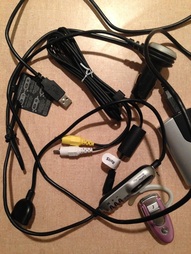
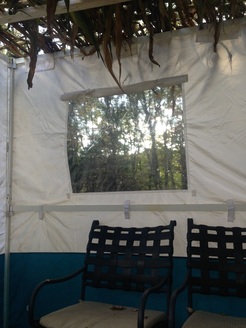
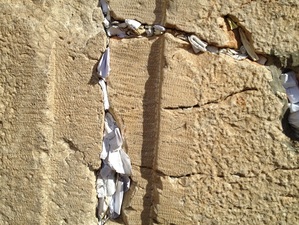
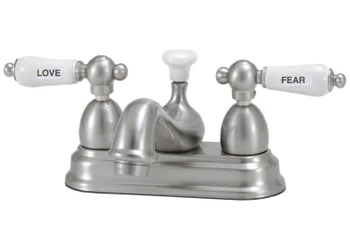
 RSS Feed
RSS Feed
